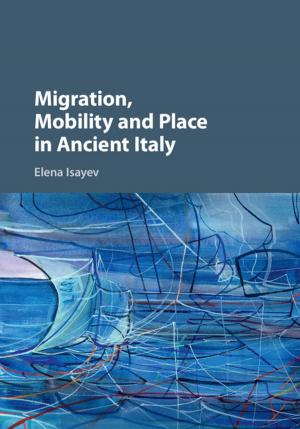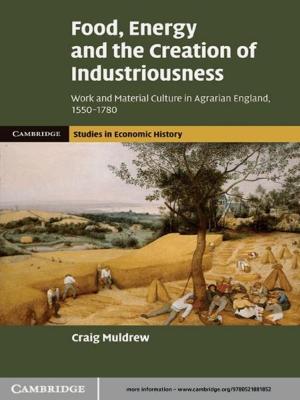Scotland and the Fictions of Geography
North Britain 1760–1830
Fiction & Literature, Literary Theory & Criticism, British, Nonfiction, History| Author: | Penny Fielding | ISBN: | 9781139810760 |
| Publisher: | Cambridge University Press | Publication: | December 11, 2008 |
| Imprint: | Cambridge University Press | Language: | English |
| Author: | Penny Fielding |
| ISBN: | 9781139810760 |
| Publisher: | Cambridge University Press |
| Publication: | December 11, 2008 |
| Imprint: | Cambridge University Press |
| Language: | English |
Focusing on the relationship between England and Scotland and the interaction between history and geography, Penny Fielding explores how Scottish literature in the Romantic period was shaped by the understanding of place and space. This book examines geography as a form of regional, national and global definition, addressing national surveys, local stories, place-names and travel writing, and argues that the case of Scotland complicates the identification of Romanticism with the local. Fielding considers Scotland as 'North Britain' in a period when the North of Europe was becoming a strong cultural and political identity, and explores ways in which Scotland was both formative and disruptive of British national consciousness. Containing studies of Robert Burns, Walter Scott and James Hogg, as well as the lesser-known figures of Anne Grant and Margaret Chalmers, this study discusses an exceptionally broad range of historical, geographical, scientific, linguistic, antiquarian and political writing from throughout North Britain.
Focusing on the relationship between England and Scotland and the interaction between history and geography, Penny Fielding explores how Scottish literature in the Romantic period was shaped by the understanding of place and space. This book examines geography as a form of regional, national and global definition, addressing national surveys, local stories, place-names and travel writing, and argues that the case of Scotland complicates the identification of Romanticism with the local. Fielding considers Scotland as 'North Britain' in a period when the North of Europe was becoming a strong cultural and political identity, and explores ways in which Scotland was both formative and disruptive of British national consciousness. Containing studies of Robert Burns, Walter Scott and James Hogg, as well as the lesser-known figures of Anne Grant and Margaret Chalmers, this study discusses an exceptionally broad range of historical, geographical, scientific, linguistic, antiquarian and political writing from throughout North Britain.















